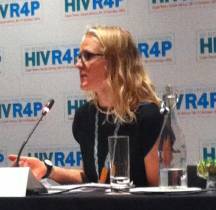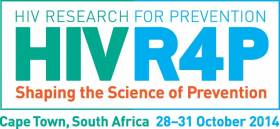With an incidence of HIV in one hard-hit region of South Africa reaching 44 percent among young pregnant mothers, this part of the world is on the front lines of the public health response to HIV. At the HIV R4P conference in Cape Town on Tuesday, however, South African science minister Naledi Pandor wanted to let the world know her country was no longer a passive participant, content to supply trial volunteers while others did the research.
Blog

Uncategorized
- 25 posts in this category

Every market needs an index to benchmark itself. In South Africa they’re setting one to measure public attitudes of intolerance and stigma toward people living with HIV and AIDS.
This so-called Stigma Index will be a biennial national survey examining prevailing moods, says Glenda Gray, president of the South African Medical Research council and co-founder of an internationally lauded perinatal HIV research unit in Soweto.

As the inaugural HIV R4P conference gets underway in Cape Town, South Africa, the first virus everyone is talking about isn’t HIV. Discussions in the hallways and over coffee start off with another virus: Ebola.

By Alix Morris
When a virus enters the body, the immune system launches a barrage of antibodies to stop the infection. In the case of HIV, however, the B cells that make those antibodies fail to generate a normal response, even in the early stages of infection, when concentrations of the virus are at their peak. Research published in the October 27th edition of Nature Immunology sheds some light on a potentially major driver of this dysfunction.



